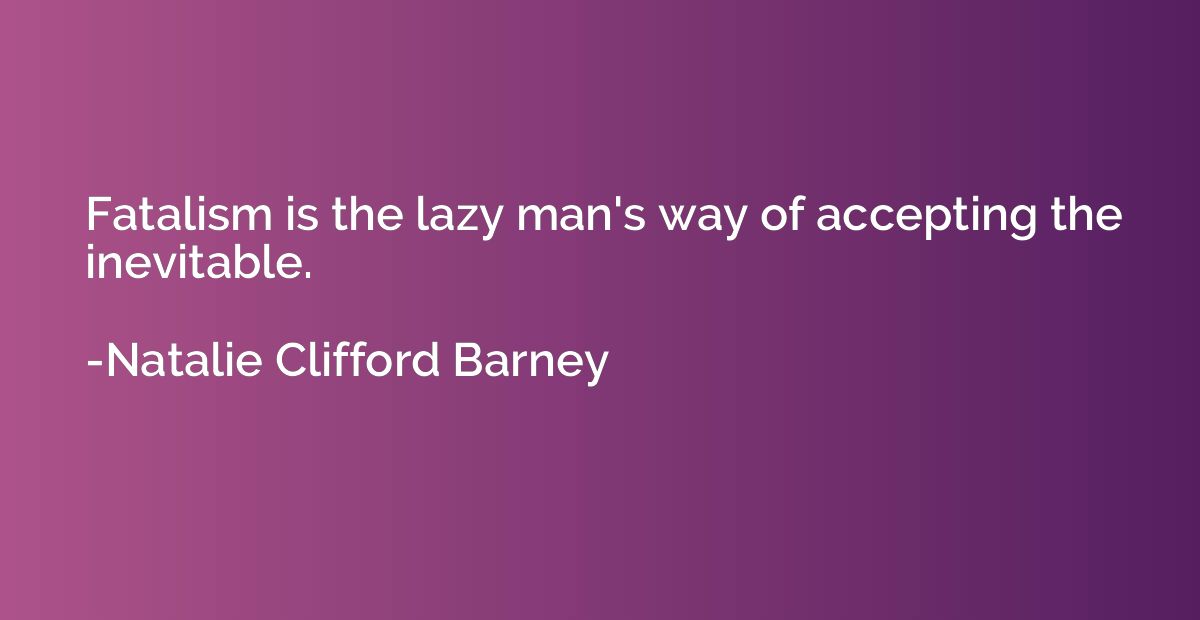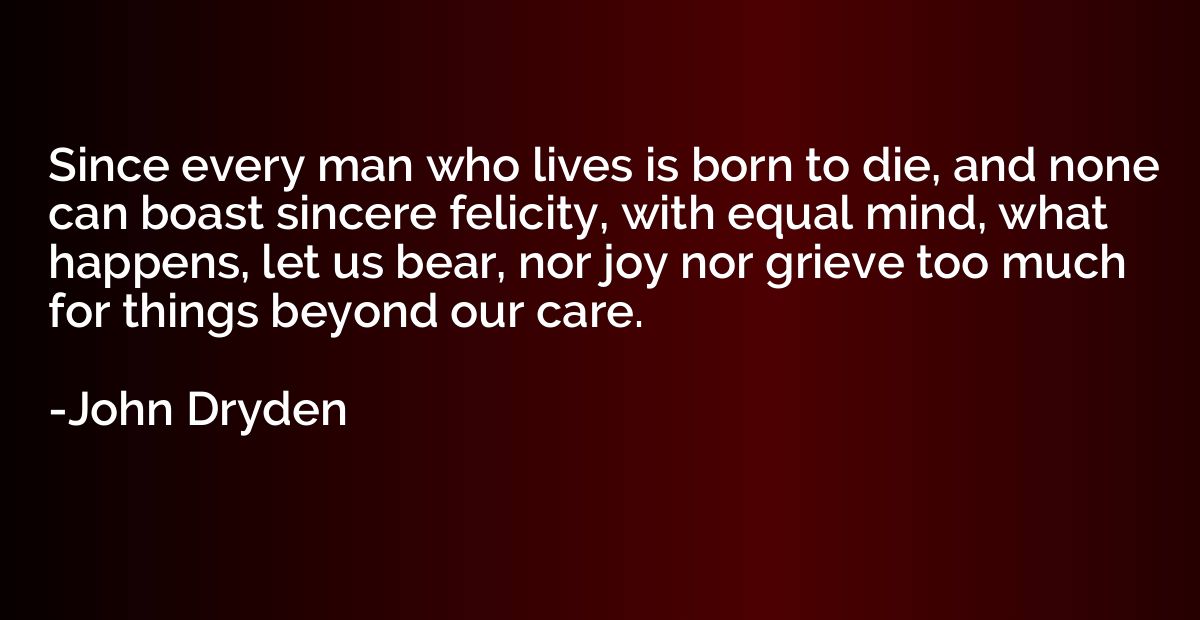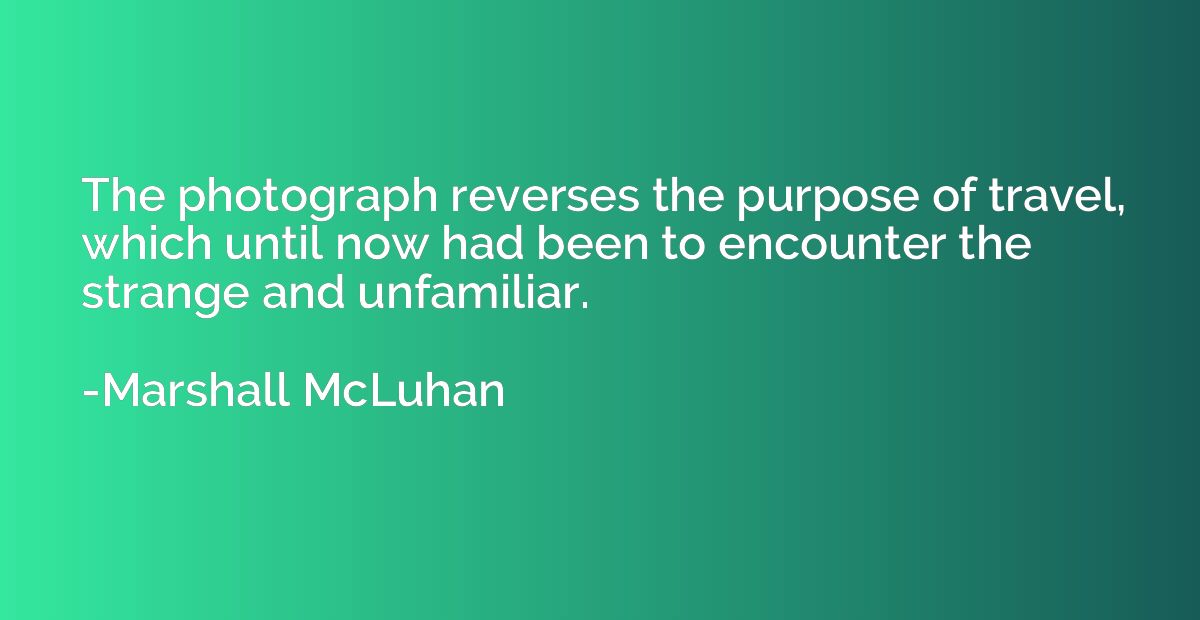Summary
This quote suggests that fatalism, the belief in the inevitability of events, is an easy way for lazy individuals to avoid taking responsibility or making efforts to change their circumstances. It implies that fatalism provides an excuse for not making necessary changes or improvements in one's life, as individuals can simply attribute their outcomes to fate rather than their own actions or lack thereof. By labeling it as the "lazy man's way," the quote challenges fatalism as a passive and unproductive approach to life.















